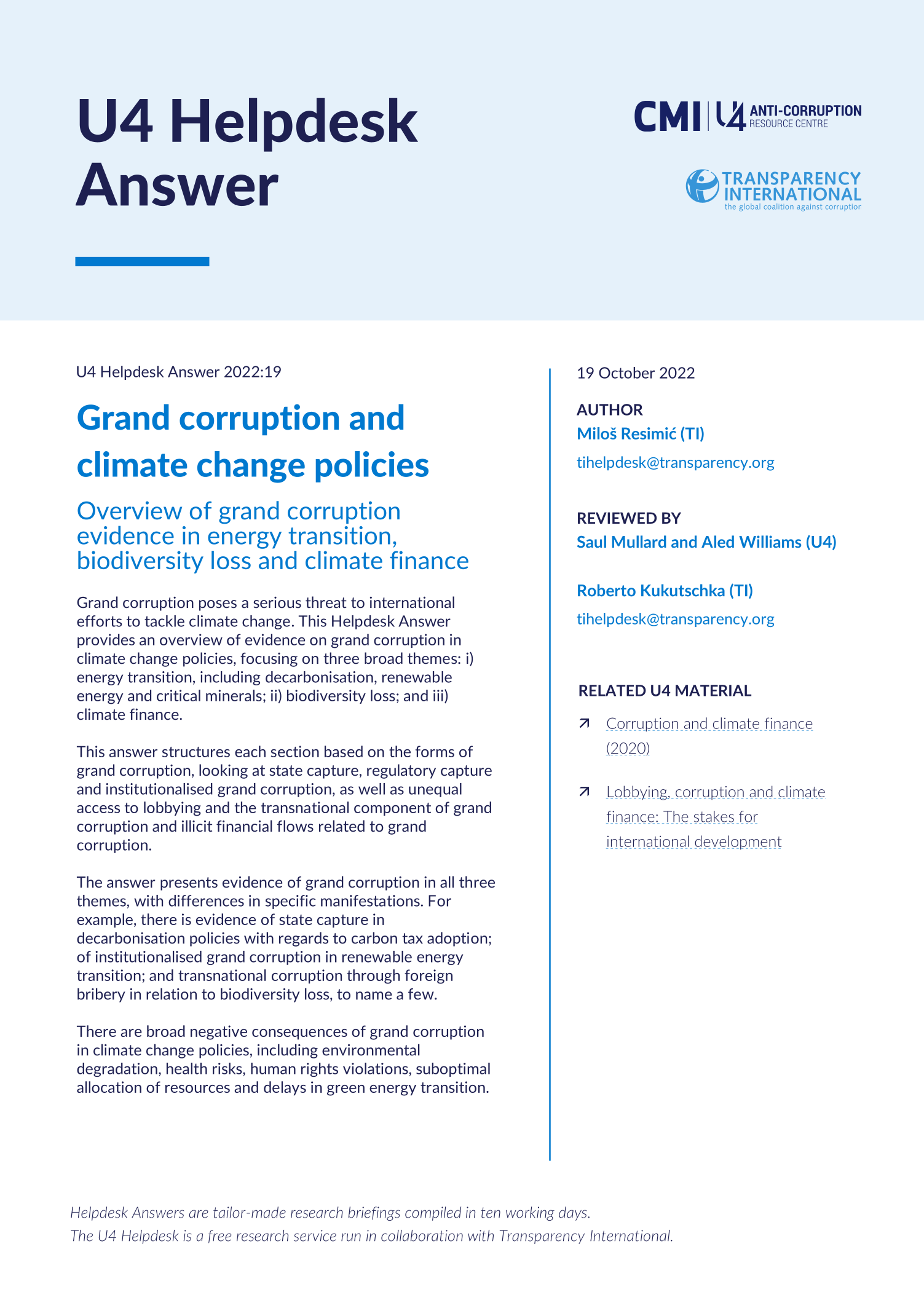Main points
- Grand corruption is present in all three themes discussed: energy transition, biodiversity loss and climate finance.
- The dominant forms of grand corruption in energy transition policies are unequal access to lobbying, institutionalised grand corruption and the transnational component of grand corruption, while in biodiversity loss and in climate finance the dominant forms are the transnational component of grand corruption and institutionalised grand corruption.
- Key actors involved in networks of grand corruption vary based on the theme, but mainly include political officeholders, multinational corporations, oversight and regulatory bodies, professional enablers, domestic firms.
- The negative consequences of grand corruption in climate change policies are numerous, including environmental degradation, health risks, human rights violations, suboptimal allocation of resources, and delays in green energy transition.


